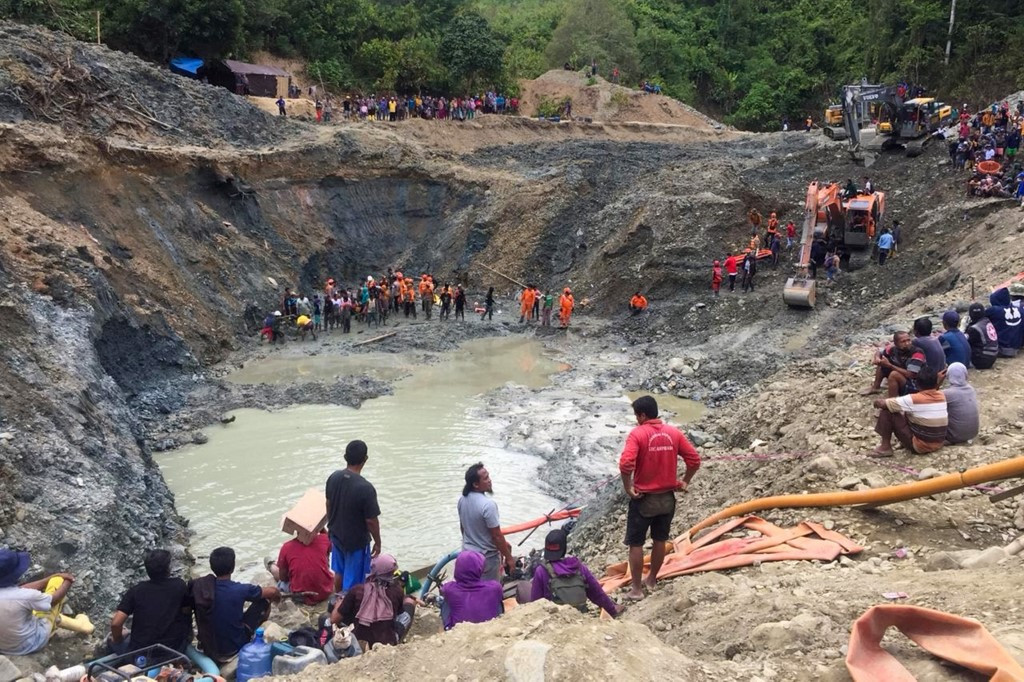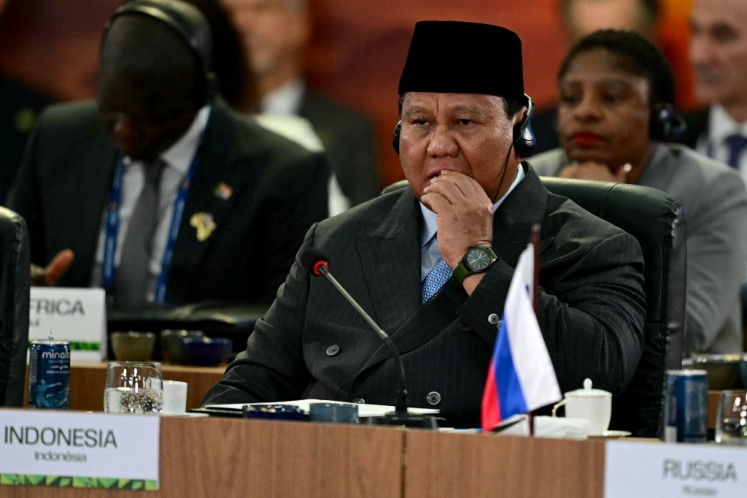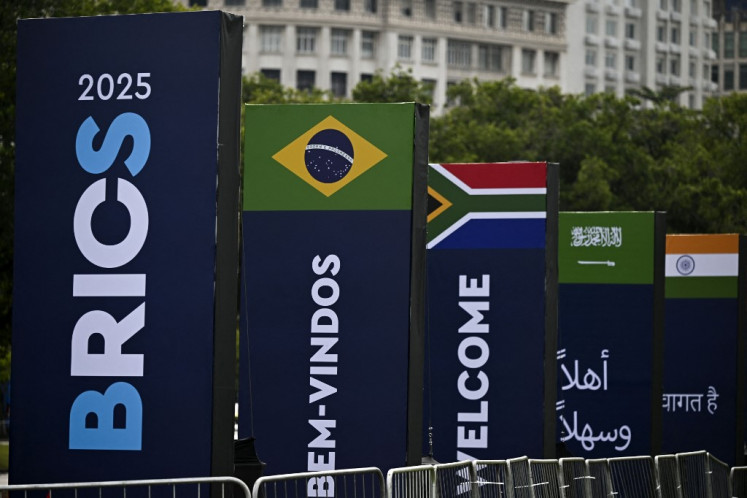Popular Reads
Top Results
Can't find what you're looking for?
View all search resultsPopular Reads
Top Results
Can't find what you're looking for?
View all search resultsIllegal mining must be stopped, but how?
Those practicing illegal mining, having no mining business permits (IUPs), have no responsibility to pay taxes, or to prepare and carry out community development and social empowerment.
Change text size
Gift Premium Articles
to Anyone
I
llegal mining activities have claimed lives, again. On Nov. 15, a traditional miner in Pohuwato regency, Gorontalo, Risman Djuma, 23, died after the mining hole he was in collapsed. His friends had tried to rescue him but to no avail.
The incident at the slope of Mount Pani came just days after a resident of Bulangita village, also in Pohuwato regency, was buried alive in an illegal mining site in Botudulanga village.
Accidents resulting from illegal mining activities are not new. Some traditional miners were “lucky” not to lose their lives, but suffer permanent injuries. However, one death is just too many. According the Pohuwato Police, illegal mining activities in the area have killed at least seven people in the past 12 months alone.
Elsewhere, in North Sumatra, 12 women were buried alive in an illegal mine in Bandar Limabung village in Mandailing Natal regency in April. Indeed, illegal mining activities anywhere in the world are prone to accidents.
Are those accidents the only consequences of illegal-mining activities? Are there any other upshots? What actions are needed to address this long-standing issue?
For sure, aside from accidents, which are oftentimes fatal, illegal-mining practices cause environmental degradation, trigger conflicts in society and financially contribute nothing to the state and the local community.
Those practicing illegal mining, having no mining business permits (IUPs), have no responsibility to pay taxes or to prepare and carry out community development and social empowerment, unlike legal miners. Illegal miners are not supposed to protect the environment either.
A report by Mongabay in September of this year found that illegal miners did harm to the environment. Citing data from the Pohuwato Environment Agency, it says that waste from illegal-mining activities, such as sedimentation, has contaminated nearly 90 percent of rice field in the regency, adversely affecting the regency’s agriculture productivity.
Local environment agency head Sumitro Monoarfa said the environmental destruction from illegal mining activities in the regency had reached an “emergency” level.
The same report also cited research from the Department of Ecology and Disaster Management, at the Institute for Humanities and Development Studies (InHIDES), which says that illegal mining in Dengilo, Pohuwato regency, has polluted the soil and degraded the environment.
According to the research, the pool of water left in the mining hole contains hazardous chemical that affect fertility of the soil and plants. Illegal mining activities also increase the possibility of landslides.
Eventually, the environmental degradation could trigger conflicts between the illegal miners and the local farmers.
State losses from illegal mining activities in the form of unpaid taxes are real. During a hearing with the Energy and Mineral Resources Ministry in October 2021, House of Representatives member Eddy Soeparno estimated the state losses from illegal gold-mining activities at Rp 38 trillion (US$2.44 billion) per annum; as for non-gold minerals, the figure amounted to Rp 315 billion.
As a reference, mineral and coal contributed Rp 34.6 trillion in non-tax state revenue in 2020, exceeding the target by 10.15 percent.
The problems are crystal clear: work safety, environment degradation, social conflict and loss of state revenues. The question is what must be done.
The Energy and Mineral Resources Ministry says illegal mining has been a cause for concern for the government. It calls for joint efforts from related agencies to deal with illegal mining and the impacts it has caused.
The ministry data as of July 2022 show there are 2,700 spots across Indonesia where illegal miners are operating. Only 96 are illegal coal mines, while the others are mineral.
Illegal mining refers to mineral or coalmining activities conducted by individuals or companies without a permit or good mining practices and harming the environment, economy and society.
From the legal point of view, illegal mining practices violate Law No 3/2021 on Mineral and Coal Mining. The law threatens offenders with a maximum of five years’ prison sentence and Rp 100 billion fine. It also criminalizes collection, processing/refining and transportation of minerals resulting from illegal mining.
While strict law enforcement is imperative, measures and policies to help illegal miners find other sources of income to support their daily needs are equally important.
Among the alternative sources of income are designation of community mining areas (WPR) and issuance of community mining permits (IPR). The government needs to quickly work on the WPR and IPR to encourage local miners to continue working without breaking the law.
Other than the WPR and IPR, the government can work with mining companies to empower the local economy through various programs like farming, cattle breeding or small- and medium-scale business.
People will not risk their lives in traditional and illegal mining areas only if they have alternatives to make their ends meet. The government and the mining industry can help find them one.
***
The writer is a communications practitioner at Pani Gold Project and a lecturer in journalism at Tarumanagara University. The views expressed are his own.










